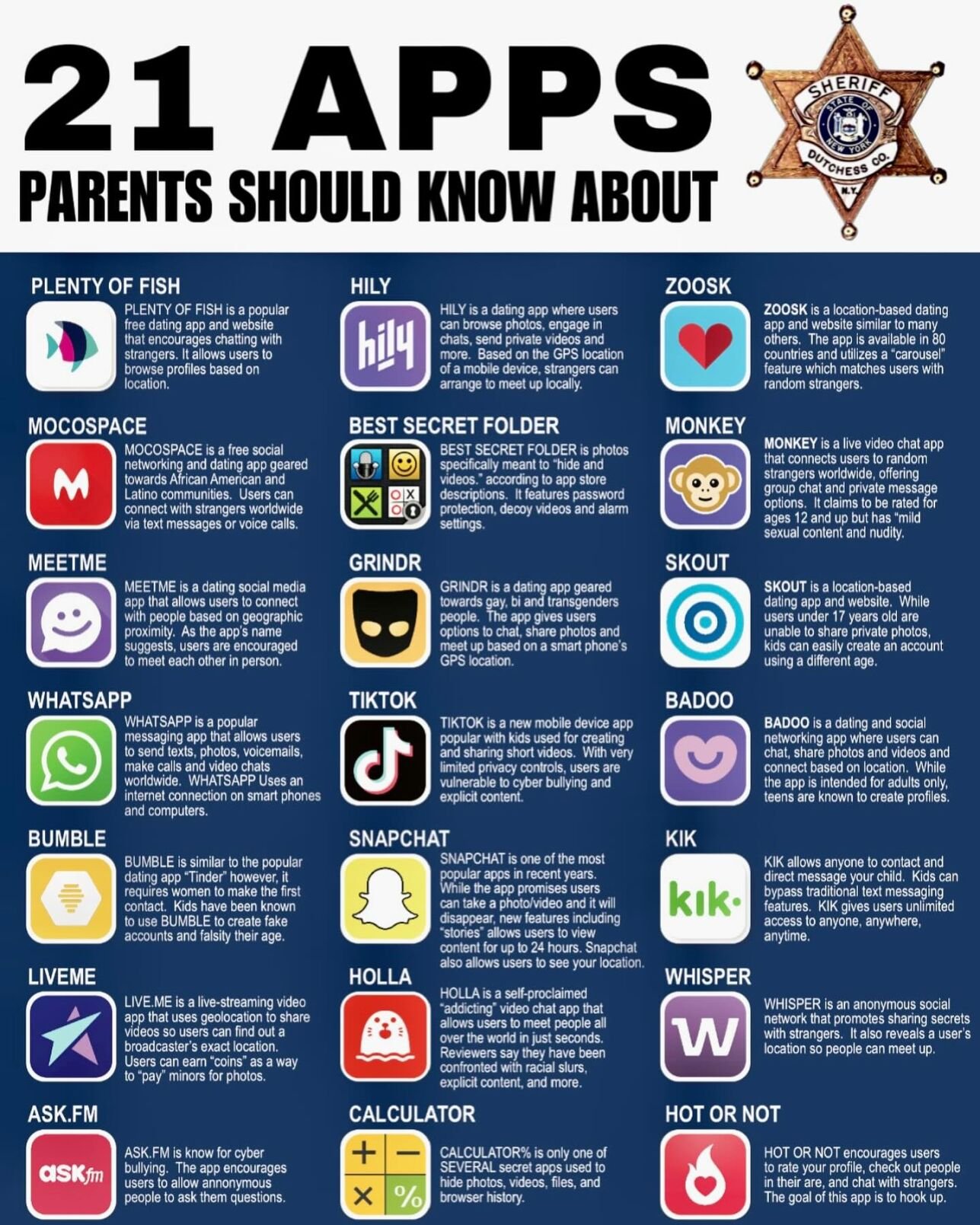SPOKANE, Wash — We used to warn kids about strangers in cars, but now, rather than a van driving down the street, the stranger danger is in the palm of their hands.
New social media platforms are constantly popping up, ones you have probably never heard of.
So, how can you stay on top of it and keep your kids safe?
OJ Weiss has two kids, 11 and 14, who are just starting to use social media.
“It used to be ‘don’t talk to strangers,’ but now you’re inviting the strangers into your house,” said Weiss. “We’re a little bit older and were not necessarily as in touch with all the social media construct that is out there, you know, we’re still stuck in the Facebook realm, and the kids now are going on to a lot of different platforms.”
It can be hard to keep up and understand what your kids are doing and who they are talking to online.
KXLY has reported before that predators reach out through popular apps like Snapchat and Instagram, but there are other lesser-known apps parents should be aware of.
According to the Pew Research Center, in 2024, 96% of teens ages 13-17 use the internet daily, with nearly half saying they are online “almost constantly,” and the number is rising yearly.
With technology integration in schools and the rise of social media use among younger kids, we can’t avoid this world, but there are ways to navigate it safely.
Detective Amy Knisley with the Coeur d’Alene Police Department is part of the Attorney General’s newly formed Idaho Internet Crimes Against Children Task Force. Her job is to help keep our kids safe online while investigating cases of people taking advantage of kids online.
“We are just at the tip of the iceberg of what is actually going on out there,” said Knisley. “Approaching them, responding to them, trying to illicit videos, sexual contact, something of that nature.”
It’s a growing concern across the country, and the Inland Northwest is no exception.
Recently, Detective Knisley held a series of workshops for local parents, like the Weiss’s, to discuss things they can do at home to prevent their children’s names from appearing in her reports.
“I think the number one thing is talking to their kids. Talking about their online usage, what apps they’re on, what games they play, who they talk to,” said Knisley. “And when the kid does come to them, talk to them about ‘it’s okay if something happened.’ That way, the kids know to tell somebody.”
This chart was made by a sheriff’s office in New York but was recently used by Detective Knisley to show apps kids may be using that parents should be aware of.
Some are well known, like Snapchat and TikTok, but others are not as much.
All of them open the door to communication with strangers and could be dangerous if in the wrong hands.
“There is definitely some grooming that goes on in a lot of these apps and maybe the secrecy,” said Knisley. “If they have friends, they won’t tell them about, or they are allowing them to use their phones in bed at night where parents have no idea who they are chatting with. A lot of it is just open communication with the kids about it.”
And it’s not just messaging apps.
Take the popular gaming apps Roblox, Minecraft, or even Fortnite. They all have options for users to chat with strangers while playing the game, which could lead to inappropriate interactions.
However, there are options to manage it by turning these chat features off or only allowing children to communicate with people they know.
“We just have boundaries in place with our kids, and we have a very open and honest relationship with our kids, and they are comfortable talking to us, and we’re comfortable talking to them,” said Weiss.
Good communication and honesty are something the Weiss family hopes to build off as they turn the page to this new chapter hoping to give their kids the tools they need to navigate our online world.
For more resources on how to talk to your kids about their online use, click here.
COPYRGHT 2025 BY KXLY. ALL RIGHTS RESERVED. THIS MATERIAL MAY NOT BE PUBLISHED, BROADCAST, REWRITTEN OR REDISTRIBUTED.
